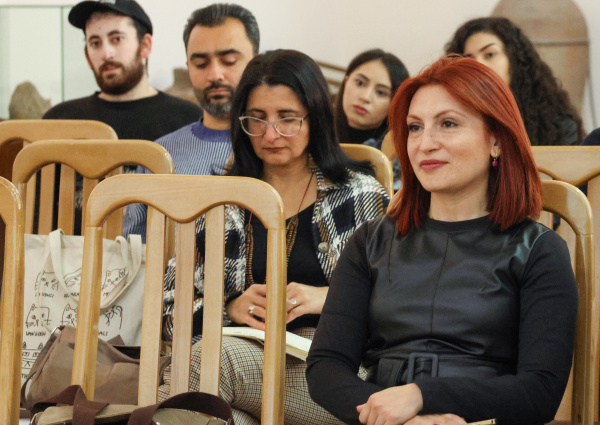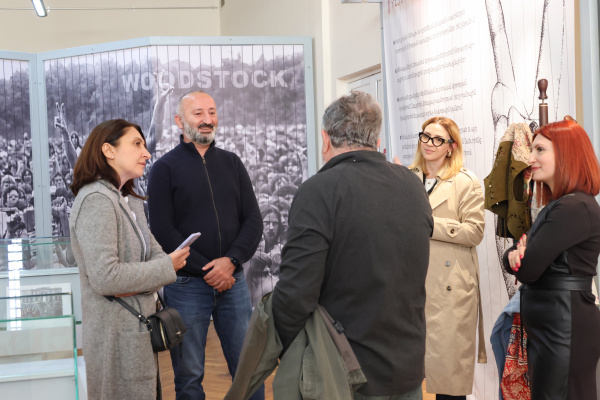October 24, 2024 | 15:30
Museum
Society
Events
The role of youth in Soviet Armenia's social and political processes: Lecture at YSU History Museum
YSU History Museum named after Professor L. Gharibjanyan hosted a lecture titled "The City and Politics in 1970-1980s Armenia", which delved into the interests of youth living in Soviet Armenia and their role in the political and social processes of the time.

The developments in Armenia during the 1970s and 1980s marked a shift away from Soviet uniformity in everyday life. This period saw a liberalization of various aspects of culture and society, including entertainment, clothing, art, cinema, music, interpersonal relations, public spaces, and gender equality.
Cultural anthropologist Aghasi Tadevosyan remarked on the challenges of liberalization during the Soviet period, stating: "That process was quite difficult because the Soviet Union, of which Armenia was a part, was isolated from the world, and any attempts to communicate with other countries were punished."

A. Tadevosyan also noted that the Soviet Union was a country of "one truth," where only one person dictated what constituted "right" art, literature, clothing, and moral standards. Those who held different views were often imprisoned.
In discussing the collapse of the totalitarian system, the speaker emphasized that it began in the late 1950s, following the death of Soviet leader Joseph Stalin.
During the lecture, it was highlighted that, following Stalin's death, seemingly innocent transformations had significant political consequences, the most impactful being the de-Sovietization and bourgeoisification of everyday life.
"The 20th Congress of the Communist Party in 1956 was a turning point, when Nikita Khrushchev, the First Secretary of the Communist Party of the Soviet Union, delivered a critical speech addressing the cult of Stalin's personality," the speaker emphasized.
YSU and the Friedrich Naumann Foundation for Freedom have conducted a number of research studies within the framework of the project "The Role of Students in the Liberal Culture of Post-Soviet Armenia," and lectures based on this research have been presented to the public.

The YSU History Museum, in cooperation with several other museums, organized a temporary exhibition dedicated to the transformation of Soviet totalitarianism.
At the end of the lecture, participants toured the museum, exploring the nature and process of liberal movements during the post-Soviet period. The exhibition showcased the musical tastes imported to Armenia at that time, the significant changes in youth clothing, and the activation of café culture.

